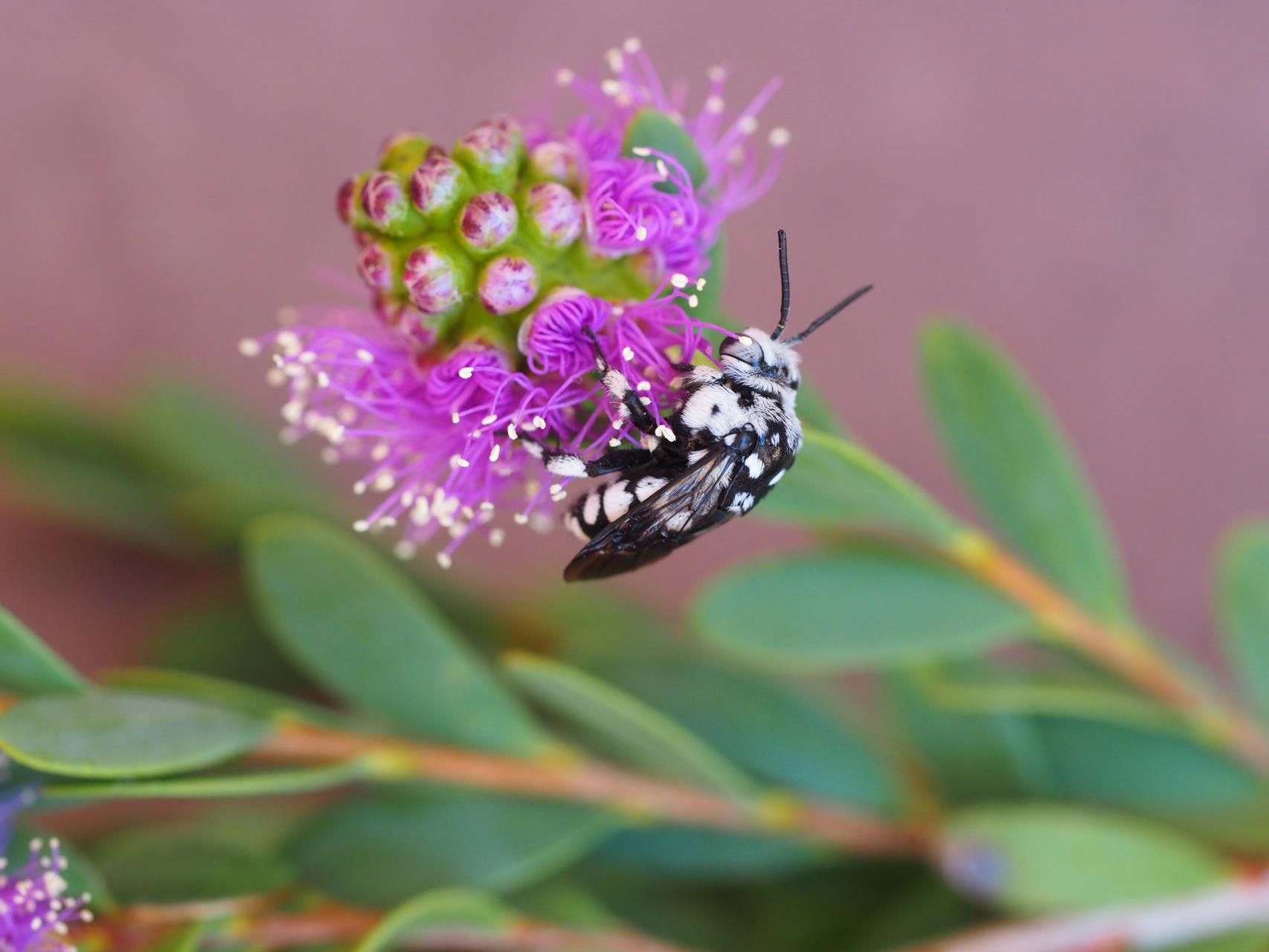Attracting Bees and Native Insects to Your Garden
Insects are vital components of ecosystems however we don’t often take the time to consider just how important they are.
Insects are some of the most diverse creatures in ecosystems, and perform many important ecosystem services roles, such as pollination. Pollinators are vital and support the health of ecosystems upon which wildlife and humans depend.
Flowering plants provide food (nectar and pollen) to insects such as butterflies, moths, beetles, wasps, flies, and of course, bees. Bees are often the most effective of pollinators.
Did You Know?
In Australia, we have both the introduced European honeybee, but more importantly, an incredible diversity of native bees (approx. 2000 species!), most of which are endemic.
5 actions you can take to support pollinators 
1. Indigenous plants are best
Many native bees strongly prefer, native flowers Native flowers, such as Myrtaceae (which includes eucalypts, tea trees, melaleucas, bottlebrush, lily pily etc.) are a common favourite, providing native bees with their favoured food resources. These can be small shrubs, hedges, shade trees, or in pots and you’ll be rewarded by beautiful form, colour and texture. You can try planting them amongst vegetables and fruit in your garden beds too. For a list of the plants proven to attract native bees, refer to the book by Dr Kit Prendergast “Creating a Haven for Native Bees.”
2. Open your own hotel
Native bees live in burrows in the ground, in little holes in wood created by wood-boring beetles, or in hollow reeds/stems. To help them, leave patches of bare ground, retain trees, or create “bee hotels.” Be aware of retail versions that may be inappropriately designed and can be at best a waste of money, at worst can represent ‘death traps’. For information on how to create optimally-designed bee hotels, refer to the book by Dr Kit Prendergast “Creating a Haven for Native Bees.”
3. Think carefully about using pesticides
They are often completely unnecessary in urban areas, and even counter-productive. Predatory insects like wasps, and insectivorous birds, often can do all the pest control you need – for free! Again, retain lots of native vegetation to support these insect predators. If pesticides are deemed necessary, always follow the instructions for appropriate use of a particular product, use when pollinators are not active, and use ones that are targeted for specific pests rather than broad-spectrum.
4. Retain native vegetation
Native bees and other pollinators are strongly associated with native vegetation. This is where they come from when they visit your garden, and native ecosystems represent hundreds of years of co-evolution. Keep patches of native vegetation in and around your home, on nature strips, verges, in pots or your local community garden.
5. Play a role in mitigating climate change
Climate change is threatening plants and pollinators by causing drought, mismatches in phenology (flower bloom and bee activity period), shifts in species distributions, altering nectar and pollen chemistry, increasing the frequency and intensity of climatic extremes and bushfires, and increasing temperatures. Together we can all make small lifestyle changes to sustain our uniquely diverse ecosystems on which we depend
Photo credit: Kit Prendergast